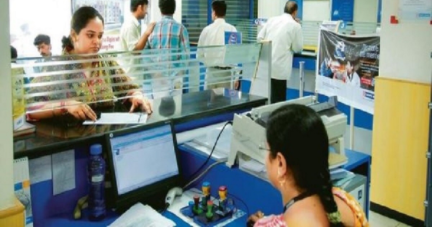The Union Government introduced an amendment bill in the Lok Sabha during the monsoon session of Parliament to alleviate the woes of bank customers and bring cooperative banks under RBI. . The bill was passed in the Lok Sabha today after deliberations.
New Delhi: Finance Minister Nirmala Sitharaman, while discussing the Amendment Bill to amend the Banking Regulation Act, 1949 in the Lok Sabha, said that whenever a bank gets into trouble, it is the people’s hard work. Money gets in trouble. The new law will provide protection to people’s bank deposits. In addition, all the co-operative banks in the country will also come under the purview of the Reserve Bank of India (RBI). The Central Government wants to ensure protection of the interests of bank consumers by amending the Banking Regulation Act, 1949.
Before the passage of the bill, the Finance Minister said that the depositors of Cooperative Banks and Small Banks have been facing a lot of difficulties for the last two years. We will ensure that their interests are protected through this bill. These banks are going through a difficult period and want a moratorium. In this, the time of the regulator is very bad. The bill was first introduced during the budget session in March. However, it could not pass due to the Kovid-19 epidemic. Subsequently, in June 2020, the Central Government enacted an ordinance to bring 1,482 urban cooperative and 58 multi-state cooperative banks under the purview of the Reserve Bank.
Depositors will have an amount of Rs 5 lakh. The decision to amend the Secure-Banking Regulation Act, 1949 is in the interest of the customers. If a bank defaults now, deposits of up to Rs 5 lakh are fully secured. In the budget presented by the Finance Minister on February 1, 2020, it was increased from Rs 1 lakh to Rs 5 lakh. In such a case, if a bank goes bankrupt or goes bankrupt, its depositors will receive a maximum of Rs 5 lakh for whatever amount they keep in their account. According to the RBI’s Deposit Insurance and Credit Guarantee Corporation (DICGC), insurance means that customers will receive only Rs 5 lakh, whichever is the deposit.
Nirmala Sitharaman clarified that the bill does not regulate the co-operative banks nor has it been introduced by the central government to take over the co-operative banks. Through the amendment bill, the RBI can defer a bank’s consolidation scheme. Prior to this amendment, if a bank was placed under a mortgage, the deposit limit of the depositors was fixed. Also, bank loans were banned.
Also Read: PM-Kisan Yojana: Beware of fake farmers, Modi government will withdraw Rs 6,000
DICGC will make payments to depositors if the bank goes bankrupt – Under the provisions of Section 16 (1) of the DICGC Act, 1961, if a bank goes bankrupt or goes bankrupt, the corporation is responsible for making payments to each depositor. He has insurance of Rs 5 lakh on his deposit. If your account is with multiple branches of the same bank, the deposit and interest will be added to all the accounts. After that, only deposits up to Rs 5 lakh will be considered safe. If you have more than one account and FD in any bank, even after the bank defaults or sinks, you are guaranteed to get only Rs 5 lakh.
The Amendment Bill will not apply to these societies: The Amendment Bill proposed to make a number of changes under Section 45. With their help, the RBI can plan the day-to-day activities of banks for the benefit of the public interest, the banking system and the management. Finance Minister Sitharaman clarified that the amendment bill would not apply to basic agricultural credit societies or co-operative societies which provide long term loans for agricultural purposes. However, it is important that these societies do not use the word ‘bank’, ‘banker’ or ‘banking’ in their name.


